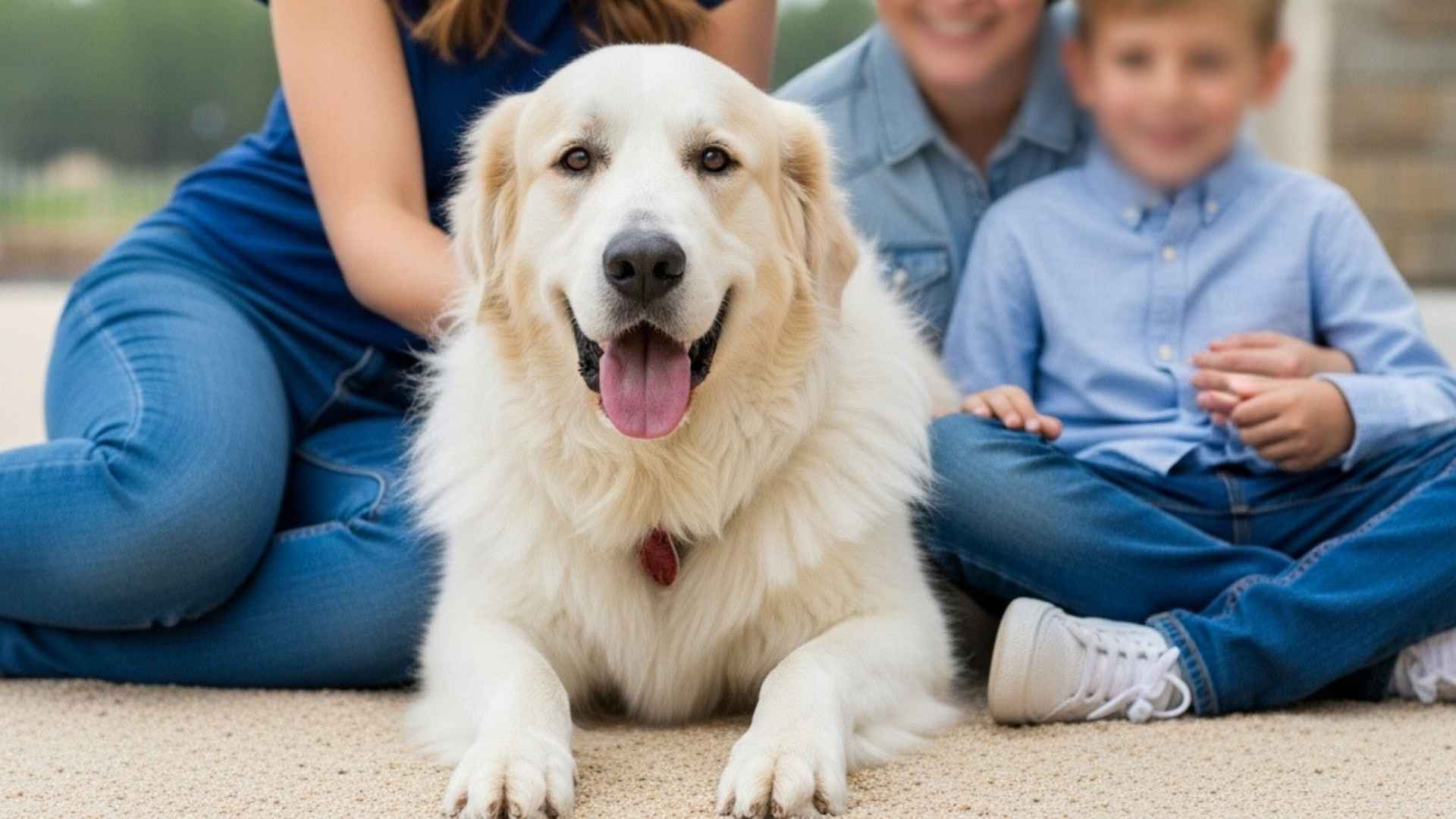Big dogs may take up the couch, but they’ll also take up your heart. Did you know that in 2024, families in the U.S. spent $152 billion on pets, showing just how much love we pour into our furry companions? That’s because dogs aren’t just pets — they’re family.
Even science agrees! Researchers found that larger dogs often show lower emotional reactivity and more sociability than smaller breeds. In other words, the big ones are often the gentlest giants.
But don’t let their cuddly nature fool you. Studies reveal that breed, size, and temperament influence how dogs protect and bond with us, creating a perfect mix of love and loyalty.
That’s why choosing the right big, friendly dog means finding both a playful buddy and a trusted guardian. Families want a wagging tail at the door — and peace of mind at night.
In this blog, we’ll introduce you to seven large, gentle protectors who balance devotion with strength. Get ready to fall in love!
Best Big Friendly Dog Breeds For Family Protection
1. Cane Corso
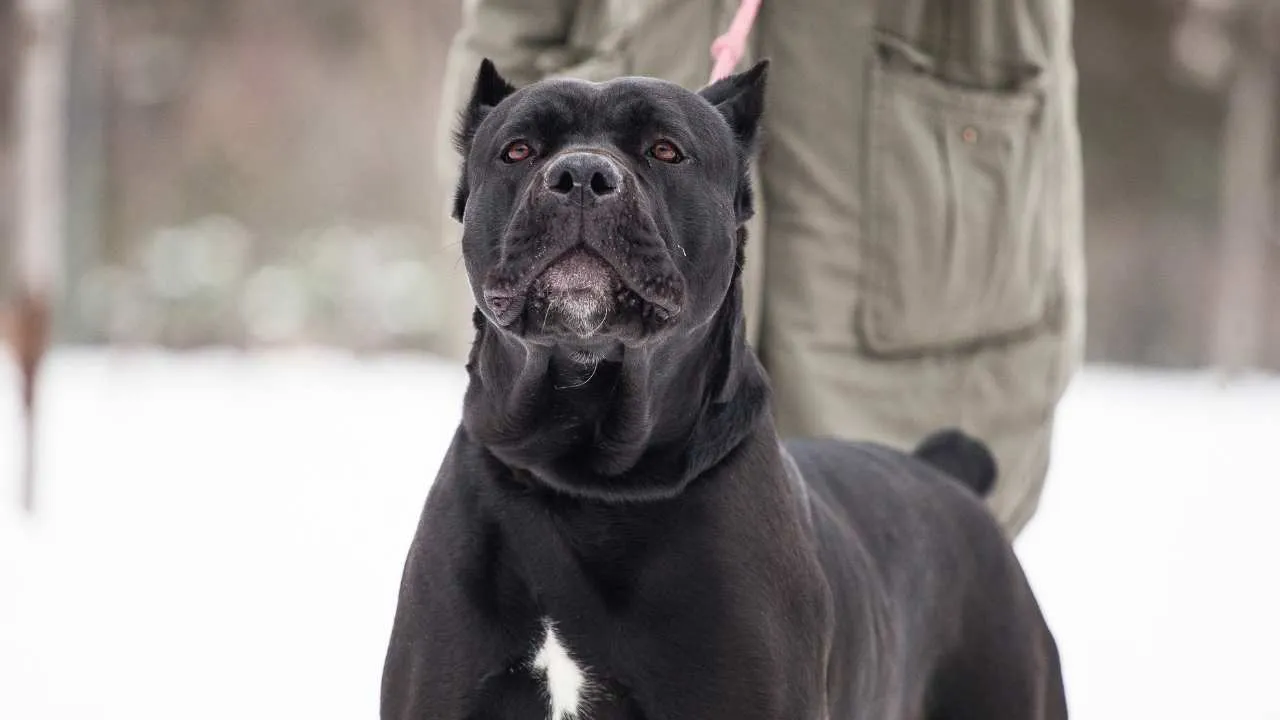
The Cane Corso is a robust, muscular guardian dog with an alert, noble expression. It’s incredibly loyal to its family and naturally protective of home and loved ones. With the right balance of firm training and gentle affection, this breed becomes a steadfast family protector.
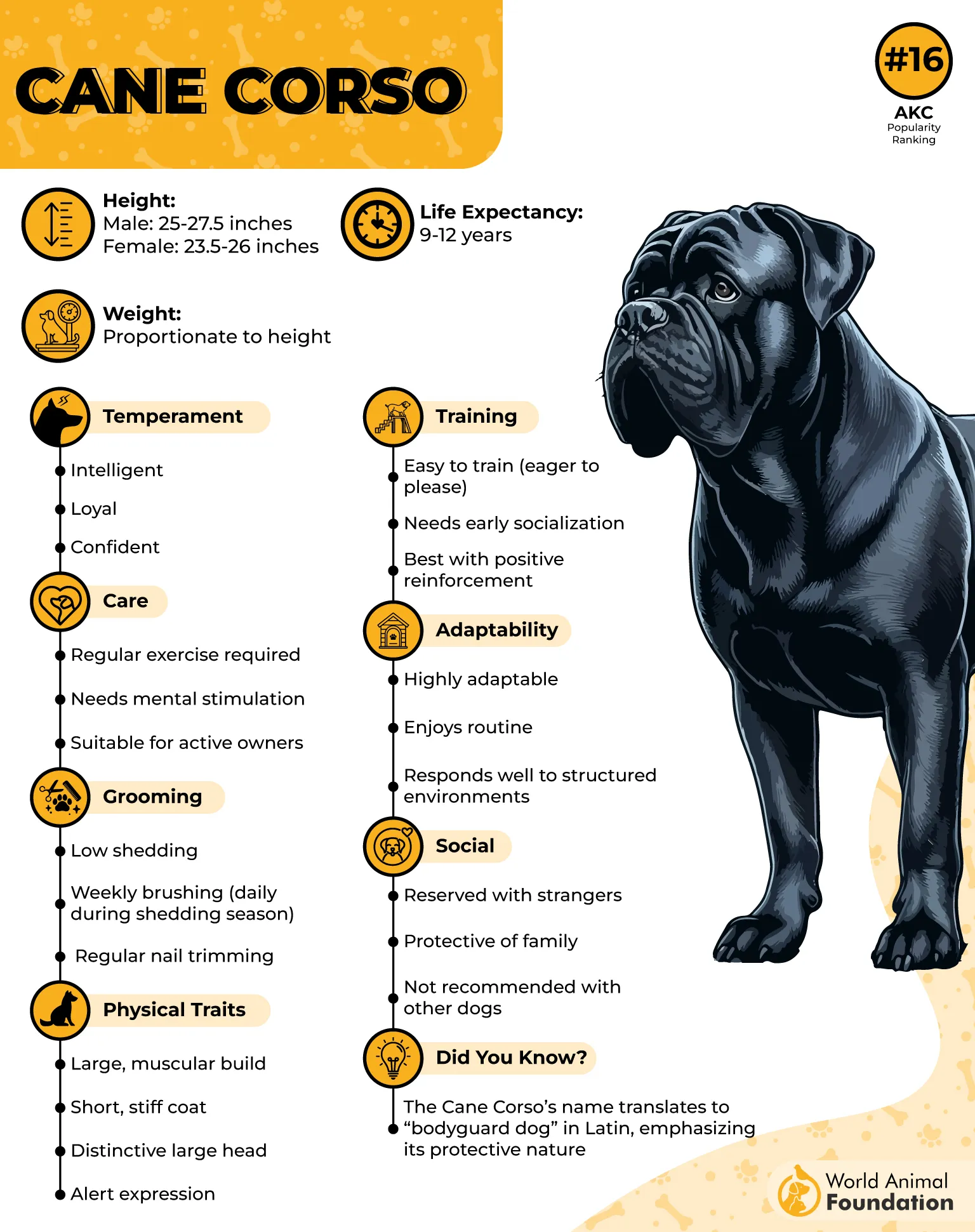
Grooming Needs
A short coat is easy to maintain: weekly brushing is usually sufficient.
Regular ear checks and dental care are essential.
Socialization Tips & Budget
Start early with exposure to strangers, children, and other pets to keep protective instincts in check.
Plan for moderate training classes, vet visits, and quality food—this is a large breed with sizable upkeep.
Health Concerns
Watch for hip dysplasia, eyelid issues, and cardiac conditions.
Work with a breeder who screens for genetic health problems.
2. Mastiff
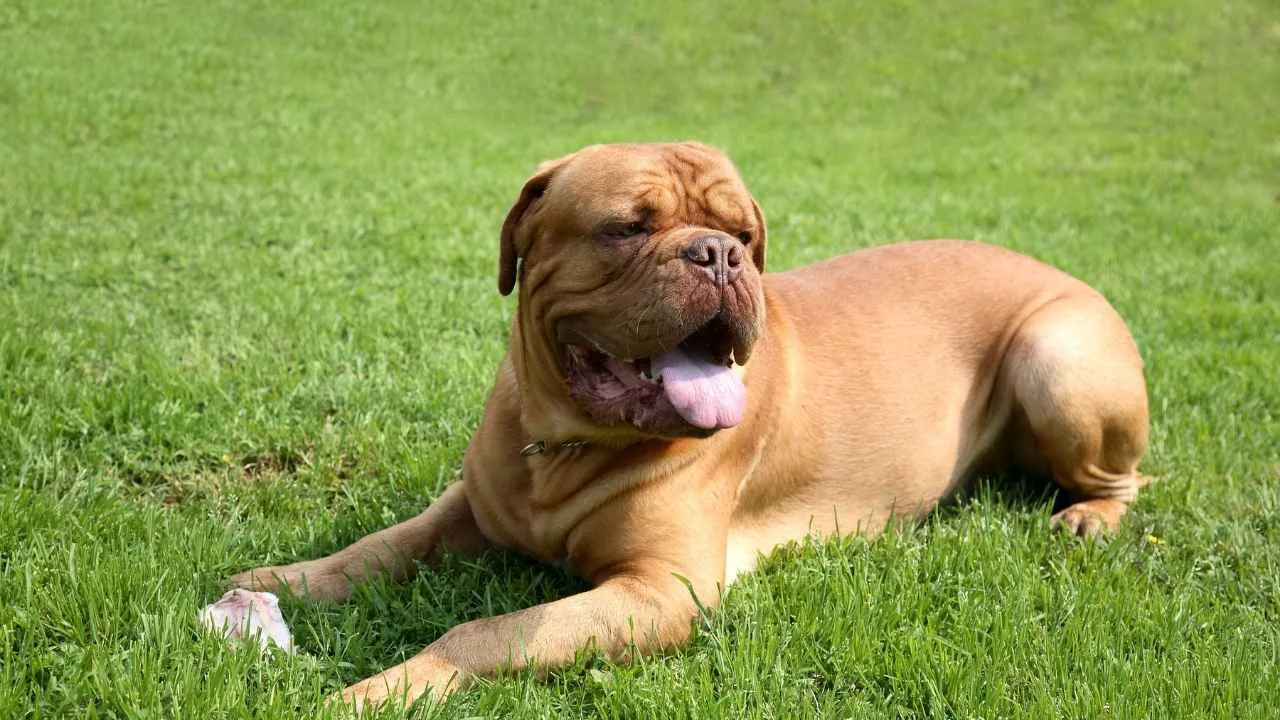
Mastiffs are gentle giants: enormous in size, but sweet-hearted and calm in temperament. At home, they tend to be placid and loving, often content to lounge around with family. But when needed, their size and courage serve as a natural deterrent to intruders.
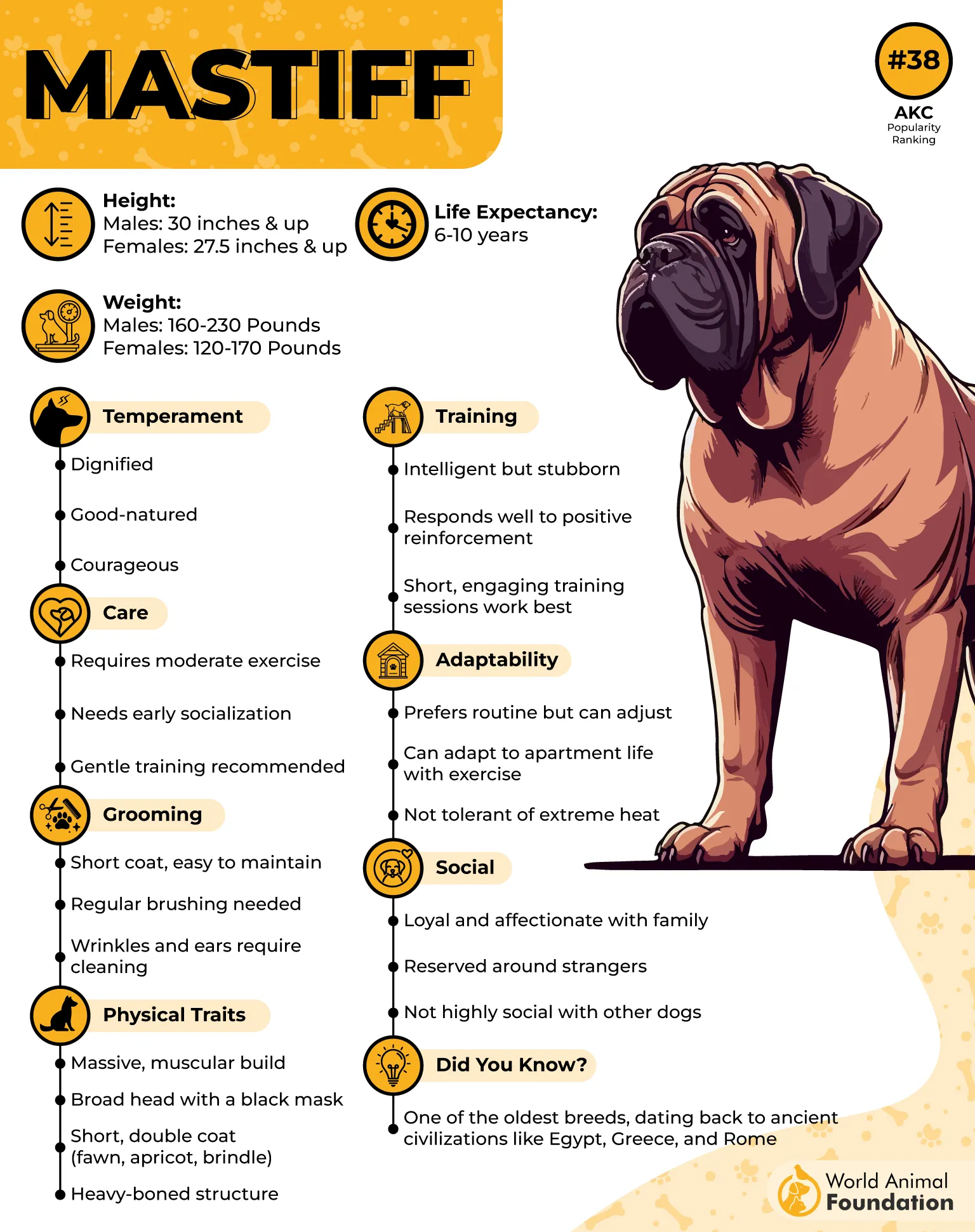
Grooming Needs
Short coat means moderate shedding—brush weekly, more during seasonal molts.
Keep skin folds, ears, and nails clean and trimmed.
Socialization Tips & Budget
Gentle, consistent early exposure helps keep their protective nature balanced.
Expect high costs for food, vet care, and supportive beds—these dogs eat and live big.
Health Concerns
Prone to hip and elbow dysplasia, bloat (gastric torsion), heart issues, and some cancers.
Choosing a reputable breeder and regular vet checks is vital.
3. Tibetan Mastiff
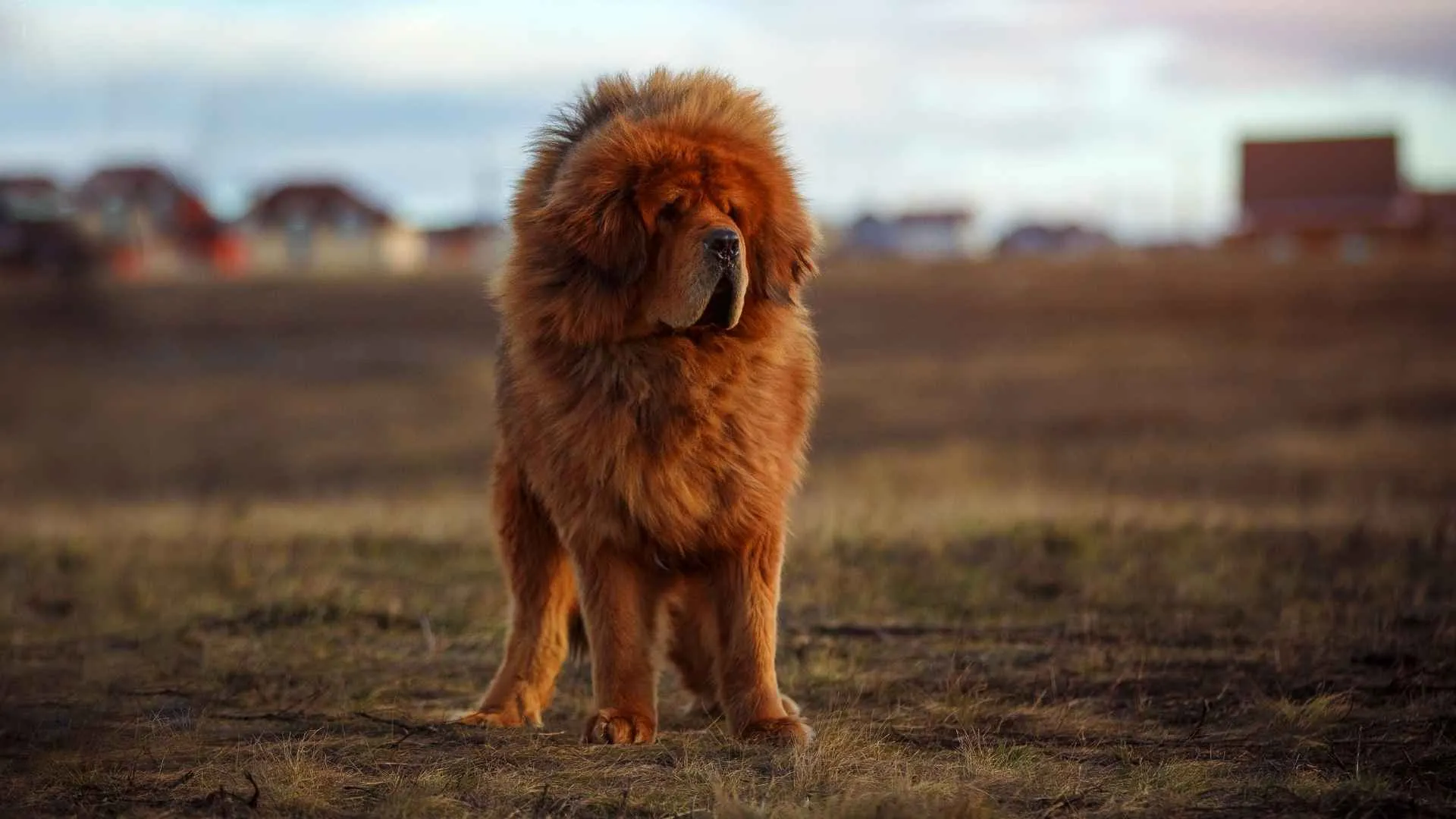
The Tibetan Mastiff is an ancient guardian breed with a commanding presence and quiet strength. They are deeply loyal to their family and reserved with strangers, making them superb property guardians, according to AKC. Though independent by nature, with proper training, they form steadfast bonds with their human pack.
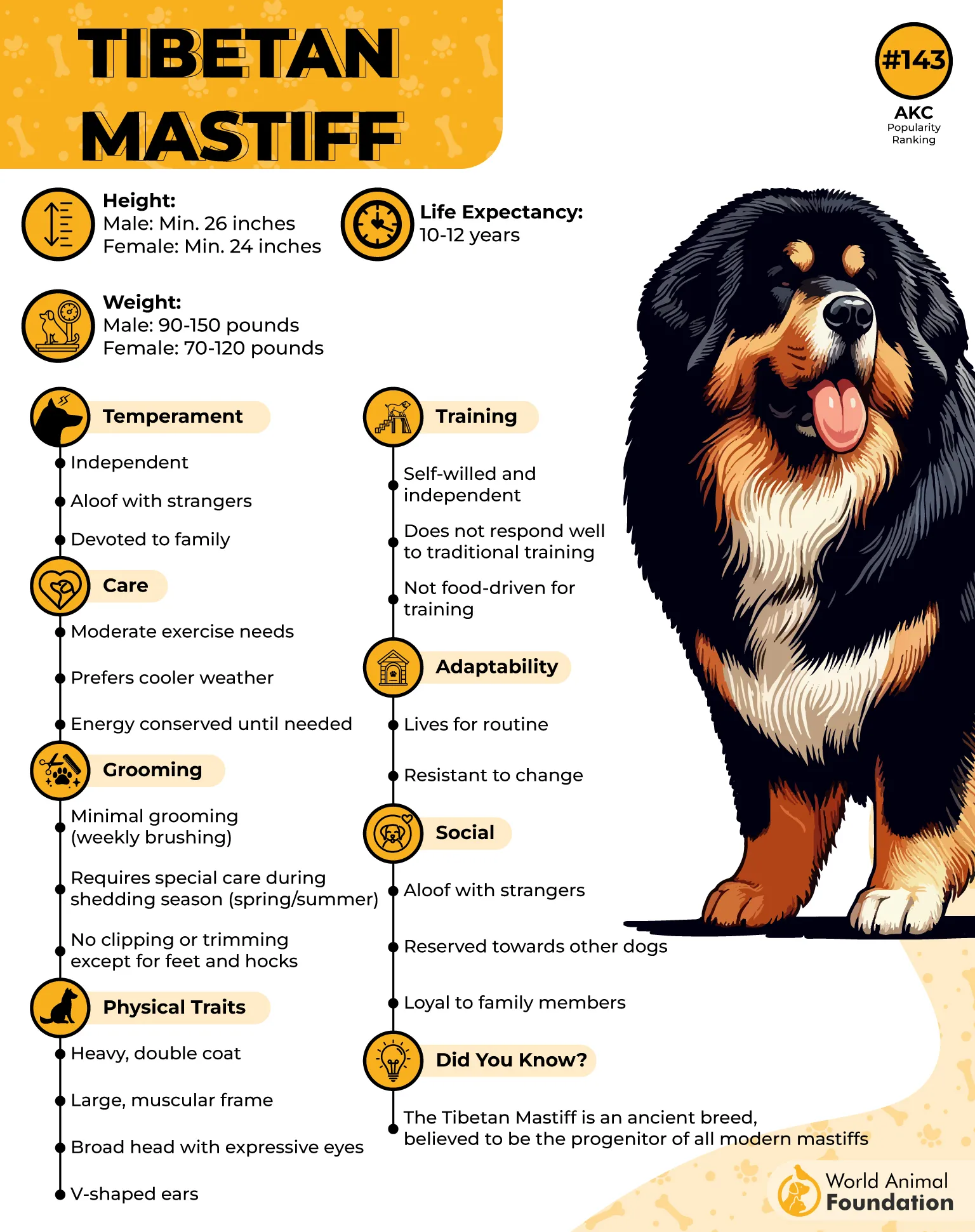
Grooming Needs
Dense double coat needs weekly brushing; heavy shedding (blowing) occurs seasonally.
Monthly baths are enough unless they get very dirty.
Socialization Tips & Budget
Start socializing from puppyhood to help them distinguish friend from foe.
Owners should budget for more expensive food, training, and occasional supplements (e.g., joint support).
Health Concerns
Watch for hip dysplasia, thyroid problems, and bloat risk common to deep-chested breeds.
Use large-breed formulas and monitor meals to reduce digestive risk.
Just keep in mind this energetic breed is extremely protective and is not recommended for first-time dog owners.
4. Akita
The Akita is a dignified, powerful breed known for its fierce loyalty and protective instincts. It’s reserved with strangers but deeply affectionate toward its human family, making it a natural guardian and companion. Well-matched with experienced owners, this breed thrives when it knows its place in a household.
Grooming Needs
Thick double coat sheds heavily (especially during “blow” seasons) — daily brushing is ideal, says WebMD
Regular dental, ear checks, and nail trims keep them healthy and comfortable.
Socialization Tips & Budget
Early exposure to new people, pets, and environments helps them learn which threats are real.
Don’t skimp on training, vet care, quality diet — large breed costs add up fast.
Health Concerns
Watch for hip dysplasia, bloat (gastric torsion), autoimmune diseases, and thyroid issues.
Use reputable breeders who screen for genetic disorders.
The AKC recognizes the Akita as courageous, loyal, and dignified.
5. Great Pyrenees
The Great Pyrenees is majestic and gentle, adored for its calm nature and watchful temperament. Originally bred to guard livestock, it carries strong protective instincts, balanced by a serene and affectionate demeanor toward its family. With room to roam and proper training, it excels as a devoted guardian.
Grooming Needs
Dense double coat requires brushing 2–3 times per week, more when shedding.
Occasional baths and checking for mats behind ears and legs are important.
Socialization Tips & Budget
Introduce puppies early to people and animals to reduce “stranger alarm” behavior.
Expect costs for brush tools, space (yard), training, and likely higher heating in cold climates.
Health Concerns
Be alert for hip dysplasia, luxating patella, bloat, and eye problems.
Choose lines tested for health and schedule periodic orthopedic screenings.
The Pyrenees’ gentle authority makes it a protective yet loving family guardian.
6. Great Dane
Great Danes are true “gentle giants” — imposing in size but gentle and affectionate at heart, claims Hills Pet. Though large, they tend to be gentle and patient with children, often more laid-back than hyperactive. Their protective presence arises more from size and loyalty than aggression.
Grooming Needs
A short coat is low maintenance — weekly brushing often suffices.
Keep ears clean, nails trimmed, and joints supported with good bedding.
Socialization Tips & Budget
Early and consistent socialization prevents fearfulness or guarding overcompensation.
Be ready for larger food, bigger beds, and frequent vet visits for such a grand dog.
Health Concerns
Prone to bloat (gastric torsion), heart disease, and bone/joint issues.
Use large-breed formulas and divide meals to reduce bloat risk.
Their size deters trouble, their nature wins hearts — a perfect balance.
7. Irish Wolfhound
The Irish Wolfhound is the tallest of dog breeds — an elegant giant with unmatched grace and a calm presence. It’s friendly, gentle, and loving toward family, while its size alone gives it natural deterrence. Although not a fierce “guard dog,” its noble temperament makes it a trustworthy protector.
Grooming Needs
Medium to long wiry coat needs brushing a few times a week and occasional trimming.
Regular dental, ear care, and skin checks keep them comfortable.
Socialization Tips & Budget
Early exposure to children, pets, and noise helps them stay composed in all environments.
Expect high maintenance costs: food, space, and frequent vet checks for such a large breed.
Health Concerns
Susceptible to bone cancer, cardiomyopathy, hip dysplasia, and digestive issues.
Avoid over-exertion when young; monitor weight and stride carefully.
Though gentle, their presence commands respect — a warm, towering friend of calm demeanor.
FAQs
1. Are large protective breeds safe for households with children?
Yes, many protective dog breeds are gentle and patient with kids when raised with early socialization. Their natural guarding instincts make them watchful over small children, but supervision is always key. With training, they can be both loving family pets and reliable protectors.
2. What training helps big dogs become both friendly and protective?
Obedience training and early socialization are essential for any large dog breed. Exposure to other animals and people teaches them to stay calm yet alert. With adequate training, they balance affection with effective protection.
3. Do protective family dogs need a lot of exercise?
Yes, most great guard dogs are strong and energetic, so daily activity is important. Regular walks, play, and mental stimulation prevent boredom and reinforce good behavior. An exercised dog is both a happier companion and a more reliable protector.
Conclusion
Finding the right large dog breed means choosing a loyal companion with natural protective instincts who truly cares for your family members. While we highlighted gentle giants, other dogs like the German Shepherd, Doberman Pinscher, and Rhodesian Ridgeback are also great guard dogs.
Breeds such as the Staffordshire Bull Terrier, Bernese Mountain Dog, or Catahoula Leopard Dog can be great family guard dogs with early socialization and consistent training and obedience. They’re extremely loyal and thrive on building a strong bond with their people.
With love, adequate training, and patience from dog owners, these protective dog breeds become more than just protection dogs—they’re truly great family dogs. Ready to meet your perfect match? Explore the best guard dog breeds today!


